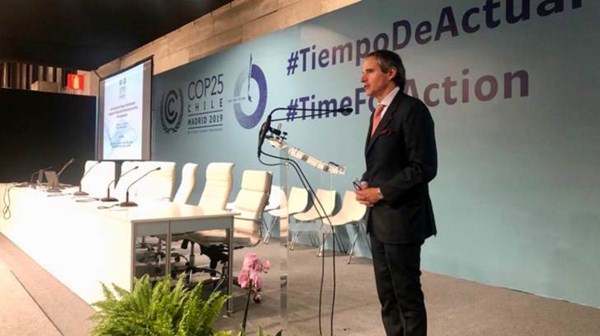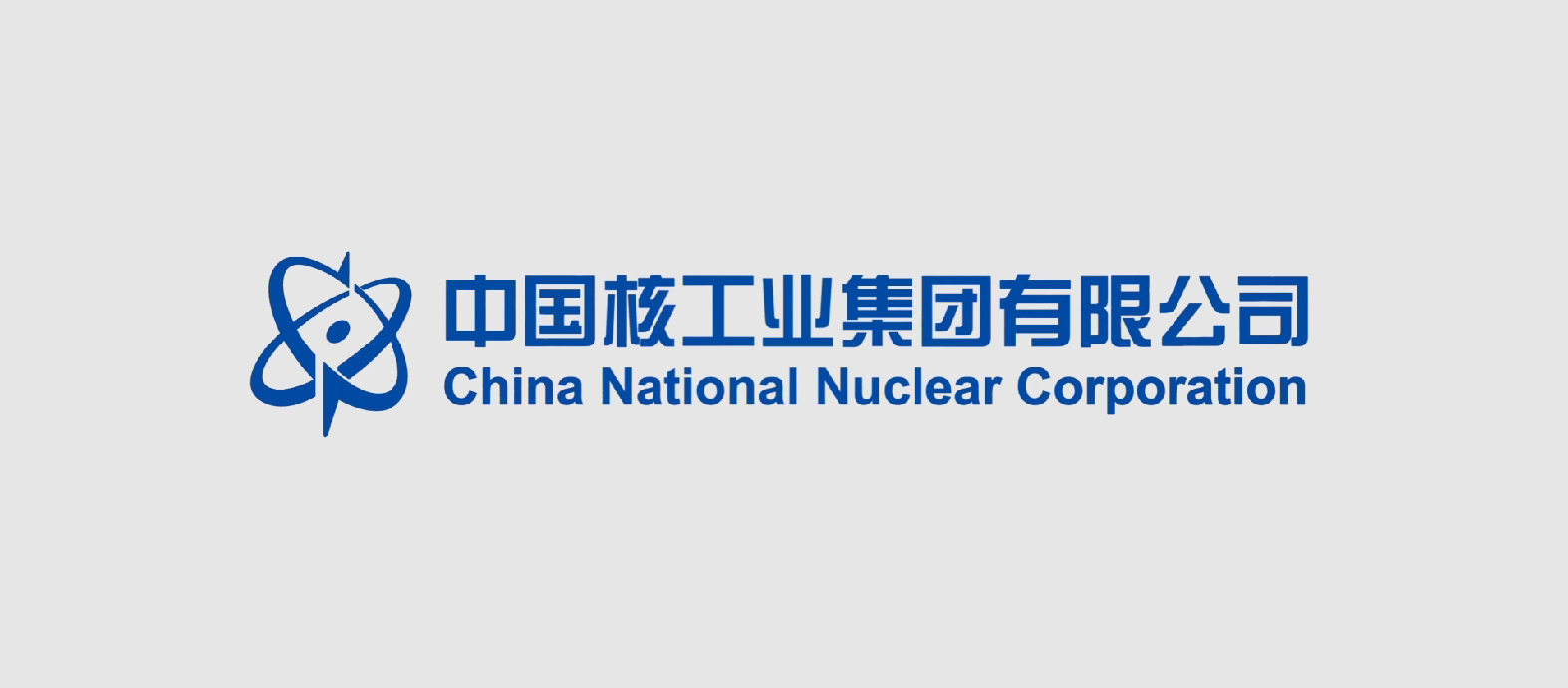Nuclear is key to decarbonisation, says head of IAEA
The use of nuclear power will need to increase to decarbonise electricity production, IAEA Director General Rafael Mariano Grossi said today at a side event during the United Nations COP25 climate summit in Madrid. Meeting sustainability and climate goals requires a significant use of nuclear energy, he said.

Grossi speaking at the COP25 side event (Image: J Donovan / IAEA)
Grossi was speaking at a high-level UN side event at COP25 on Sustainable Development Goal (SDG) 7, to ensure access to affordable and reliable energy. The event - entitled Accelerating the energy transformation in support of sustainable development and the Paris Agreement - focused on initiatives that could have a significant impact towards achieving SDG 7, help close the energy access gap in a sustainable way and promote climate action by transitioning toward zero-carbon energy solutions. It marked Grossi's first official trip since taking office on 3 December.
Nuclear power currently produces about 10% of the world's electricity, but contributes one-third of all low-carbon electricity, Grossi noted. Nuclear power avoids the emission of some 2 gigatonnes of carbon dioxide (CO2) annually. "Renewables such as wind and solar power are growing in importance. But these are intermittent energy sources which cannot meet countries' needs on their own," he said. "That means more use of nuclear power will be needed.
"Nuclear power offers a steady, reliable supply of electricity. It can provide continuous, low-carbon power to back up increasing use of renewables. It can be the key that unlocks their potential by providing flexible support - day or night, rain or shine."
Grossi said that nuclear energy and renewables should not be seen as being in competition with one another. "In order to achieve climate change goals and ensure sufficient energy for the future, we need to make use of all available sources of clean energy." If any major users of nuclear power were to cease using it overnight, there would be "very serious consequences" for CO2 emissions.
Thirty countries are currently relying on nuclear power, Grossi noted. "Contrary to many perceptions, use of nuclear power continues to grow." He noted that 37 power reactors have been connected to the grid over the past five years and that a further 55 units are under construction. Four countries are building their first nuclear power plants, with another 25 or so countries actively considering adding nuclear to their energy mix.
"In coming years, technological advances and new funding models are likely to improve the economic attractiveness, safety and cost-effectiveness of nuclear power. For example, small modular reactors could make nuclear power feasible on smaller grids, and in remote settings, and for non-electrical applications."
The nuclear industry, led by World Nuclear Association, has set the Harmony goal for nuclear energy to provide at least 25% of global electricity by 2050. This will require trebling nuclear generation from its present level. Some 1000 GWe of new nuclear generating capacity will need to be constructed by then to achieve that goal. The Association has identified three requirements to achieve this: a level playing field that values reliability and energy security; a harmonised nuclear regulatory environment; and a holistic safety paradigm for the entire electricity system.
Researched and written by World Nuclear News


